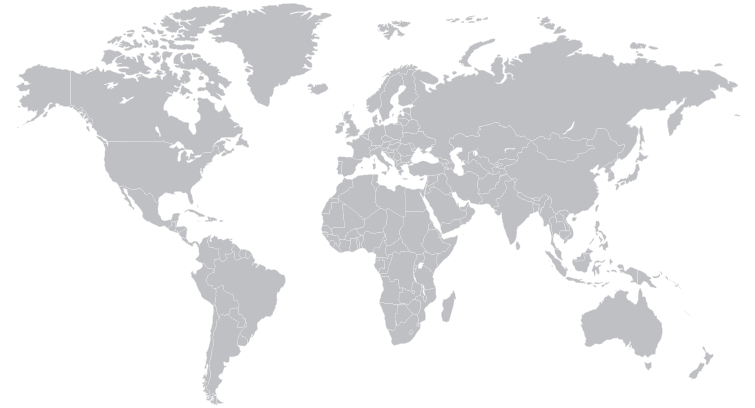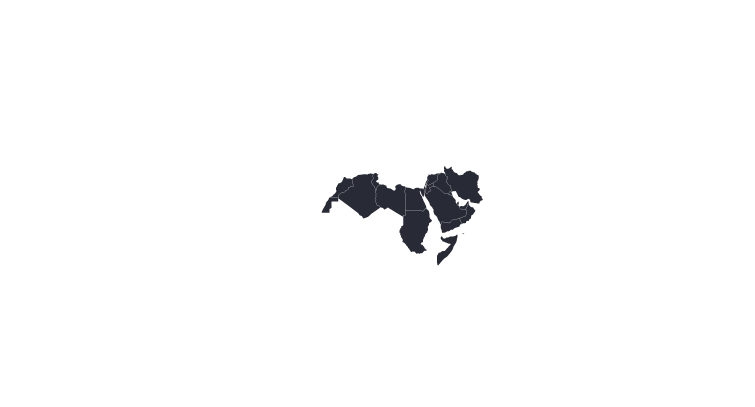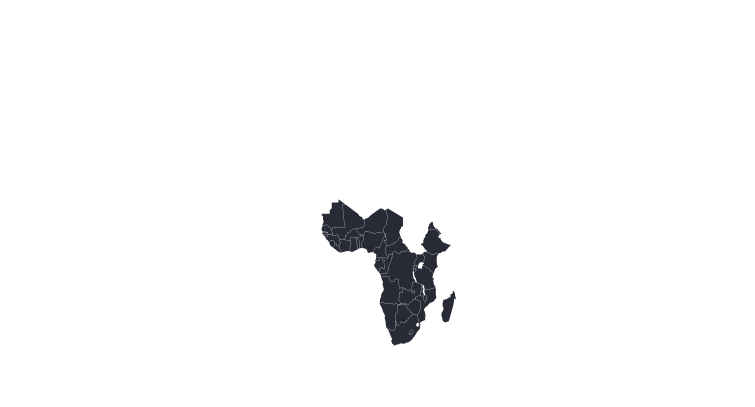Project
GLACY+ (Global Action on Cybercrime Extended)
About
Cybil code: GI-07
Status: Finished
From: Mar 2016
To: Feb 2024
Implementors
Partners
Region
Countries
- Global
- Angola
- Antigua and Barbuda
- Argentina
- Bangladesh
- Barbados
- Belize
- Benin
- Bolivia
- Botswana
- Brazil
- Brunei
- Burkina Faso
- Burundi
- Cabo Verde
- Cambodia
- Cameroon
- Central African Republic (the)
- Chad
- Chile
- Colombia
- Comoros (the)
- Congo (the)
- Congo, Democratic Republic of the
- Costa Rica
- Côte d'Ivoire
- Cuba
- Djibouti
- Dominican Republic (the)
- Ecuador
- Egypt
- El Salvador
- Equatorial Guinea
- Eswatini
- Ethiopia
- Fiji
- Gabon
- Gambia (the)
- Ghana
- Grenada
- Guatemala
- Guinea
- Guinea-Bissau
- Guyana
- Haiti
- Honduras
- Indonesia
- Jamaica
- Kenya
- Kiribati
- Liberia
- Madagascar
- Malawi
- Malaysia
- Maldives
- Mali
- Marshall Islands (the)
- Mauritania
- Mauritius
- Mexico
- Micronesia (Federated States of)
- Morocco
- Mozambique
- Myanmar
- Namibia
- Nauru
- Nepal
- New Zealand
- Nicaragua
- Niger (the)
- Nigeria
- Panama
- Papua New Guinea
- Paraguay
- Peru
- Philippines (the)
- Rwanda
- Saint Kitts and Nevis
- Saint Lucia
- Saint Vincent and the Grenadines
- Samoa
- Sao Tome and Principe
- Senegal
- Seychelles
- Sierra Leone
- Singapore
- Solomon Islands
- Somalia
- South Africa
- Sri Lanka
- Sudan (the)
- Suriname
- Tanzania
- Thailand
- Timor-Leste
- Togo
- Tonga
- Trinidad and Tobago
- Tuvalu
- Uganda
- Uruguay
- Vanuatu
- Viet Nam
- Zambia
- Zimbabwe
Contact
Summary
Through training and advice, GLACY+ strengthens the capacities of states worldwide to apply legislation on cybercrime and electronic evidence and to enhance their abilities for effective international cooperation in this area, with a particular focus on its currently 17 priority countries. It extends and expands on the experience and results of the earlier GLACY project (2013 – 2016).
Details
Aim
The overall objective of GLACY+ is to prevent and fight organised crime, in particular cybercrime, in line with international legal instruments and human rights norms, standards and good practices.
The project’s specific objective is to strengthen the capacities of States worldwide to apply legislation on cybercrime and electronic evidence and enhance their abilities for effective international cooperation in this area, while ensuring compliance with international human rights standards and the rule of law.
Context
The GLACY+ Project (Global Action on Cybercrime Extended), launched in October 2016, is a joint project between the European Union and the Council of Europe, financed under the Instrument Contributing to Peace and Stability and implemented by the Council of Europe. It’s overall objective is to strengthen the capacities of States worldwide to apply legislation on cybercrime and electronic evidence and to enhance their abilities for effective international cooperation in this area. The project has a budget of EUR 18.9 million.
The Project currently has 17 priority countries (Benin, Brazil, Burkina Faso, Cabo Verde, Chile, Colombia, Costa Rica, Dominican Republic, Ghana, Mauritius, Morocco, Nigeria, Paraguay, Philippines, Senegal, Sri Lanka and Tonga), which may serve as hubs to disseminate and multiply the effect of the project in their respective regions. By leveraging the regional outreach of the hubs, GLACY+ has supported a number of additional countries, in particular in to harmonise their national legislation with the Budapest Convention.
The target groups for the project are:
- Institutions: national authorities/policy and decision makers, legislators, government representatives, criminal justice authorities including law enforcement agencies, judges, prosecutors, national training academies;
- Donors and partners: the European Commission along with relevant EU institutions and agencies, including EU Delegations in project countries; project partners, including implementing partner – INTERPOL;
- Interested parties: Embassies of EU member states and project countries, other relevant international organisations; private sector; academic community;
- Society at large: local and international (when possible) mass-media; general public.
In view of recent developments, in 2022 the project was updated and strengthened with new streams of activities, including:
- Criminal justice and policy makers: strengthening dialogue between criminal justice practitioners and foreign policy makers and legislators on matters related to legislation and international cooperation on cybercrime and electronic evidence.
- Second Additional Protocol: strengthening criminal justice capacities on the application of tools and procedures established in the Second Additional Protocol to the Budapest Convention on enhanced cooperation and disclosure of electronic evidence.
- Emerging challenges in the criminal justice sector: enhancing criminal justice capacities on emerging issues (artificial intelligence, privacy-enhancing technologies, cloud computing, blockchain and distributed ledger technologies etc) related to cybercrime and electronic evidence and their implication on legislation.
- Criminal justice and cybersecurity: fostering collaboration between criminal justice sector and cybersecurity stakeholders.
- Criminal justice and COVID-19: support for criminal justice authorities to overcome challenges related to COVID-19 and build on the opportunities created in the aftermath of the pandemics.
Outcomes
Over four years, almost 3,000 criminal justice professionals received cyber-related training. For example, 325 Sri Lankan judges received courses from local Sri Lankan professionals, showing how capacity-building activities can lead to projects that then stand on their own feet. Furthermore, the beneficiaries of that training have become trainers themselves. At the same time, the following countries became parties to the Budapest Convention on Cybercrime with project assistance: Costa Rica – 2017; Paraguay – 2018; Cabo Verde – 2018; The Philippines – February 2018; Morocco – June 2018; Ghana – December 2018; Peru – 2019; and Colombia – 2020. Further, the following countries were invited to accede to the Budapest Convention on Cybercrime during the project and received assistance to help them to do so: Benin – 2019; Brazil – 2019; Burkina Faso – 2019; Guatemala – 2020; Fiji – 2021; Vanuatu – 2021; and Ecuador – 2022.
Each of the project’s objectives translates into concrete expected results, such as:
- Reinforcement of policies and strategies in up to 20 countries, including relevant aspects of cybersecurity and partnerships with the private sector, as well as experience sharing in further countries
- Enhancement of policy dialogue and cooperation on cybercrime between priority countries and their regions, and international and regional organisations, and synergies maximised with EU-funded projects developed in project areas
- Harmonisation of cybercrime electronic evidence and related data protection provisions with the Budapest Convention and its Protocols, with full respect for the rule of law and human rights standards
- Training of at least 1,000 law enforcement officers in basic cybercrime investigations and computer forensics as well as related rule-of-law requirements
- Effective international police-to-police cooperation on cybercrime and electronic evidence
- Strengthening of interagency cooperation among cybercrime units, financial investigators and financial intelligence units in the search for, seizure of and confiscation of online crime proceeds
- Strengthening of institutions and procedures for international judicial cooperation related to cybercrime and electronic evidence
- Reinforcement of training centres, academic institutions and other entities providing criminal justice capacity-building programmes with a regional scope, as well as streamlining of training on cybercrime and electronic evidence.
Output
The project produced and contributed to several guides and reports:
- Comparative analysis of the Malabo Convention of the African Union and the Budapest Convention on Cybercrime (20 November 2016)
- Criminal Justice Statistics on Cybercrime and Electronic Evidence in GLACY+ countries – National approaches and common challenges (29-31 March 2017)
- Guide for Criminal Justice Statistics on Cybercrime and Electronic Evidence, in cooperation with INTERPOL (October 2020)
- The global state of cybercrime legislation 2013 – 2022: A cursory overview (2 February 2022)
- Guide on Law Enforcement Agencies training strategies, in cooperation with the CyberSouth project (April 2022)
In cooperation with the other projects implemented by the Cybercrime Programme Office of the Council of Europe, GLACY + supports the community of national judicial trainers, through the creation of the International Network of Judicial Trainers on Cybercrime and Electronic Evidence. The Terms of Reference and governance model of the Network were agreed in January 2021 at its First 2021 Plenary Meeting.
Participating country representatives also agreed to start the first series of practitioners-to-practitioners workshops. The first series successfully took place from February to July 2021, covering 11 overarching themes on cybercrime and electronic evidence. Designed and delivered by national trainers from 13 countries, the series gathered more than 270 participants from 28 countries. The second series of practitioners-to-practitioners workshops debuted on 3 November 2021, with a workshop on handling and preservation of electronic evidence and the admissibility of such evidence in cybercrime investigations.
Another important step in building the Network is the establishment of its steering committee, which currently comprises focal points from 19 participating countries:
- First Coordination Call of the Steering Committee of the Network, in April 2021.
- Second coordination call of the Steering Committee of the Network, in October 2021.
Activities
Example activities implemented under the GLACY+ project include:
- First Regional Introductory Judicial Training of Trainers (ToT) for West African countries (13-17 March 2017 @ Dakar, Senegal)
- International Workshop on Criminal Justice Statistics on Cybercrime and Electronic Evidence (29-31 March 2017 @ Accra, Ghana)
- Forum on the policies on cybercrime capacity building by international/regional organisations – LATAM and CARIBBEAN, including
- LATAM and Caribbean Forum on International Cooperation against Cybercrime (5-7 December 2017 @ Santo Domingo, Dominican Republic)
- Workshop on Data Protection Legislation (10-14 September 2018 @ Calabar, Nigeria)
- First African Forum on Cybercrime (16-18 October 2018 @ Addis Ababa, Ethiopia)
- Cyber Security & Cybercrime Assessment of Namibia (22-24 May 2019 @ Windhoek, Namibia)
- African Regional Workshop on Cybercrime, National Cyber Security and Internet Piracy (23-27 September 2019 @ Lagos, Nigeria)
- Validation Workshop on the Cybercrime Bill 2020 (5 February 2020 @ Serrekunda, The Gambia)
- Workshop ‘Enhancing the capacity of member states to prevent and investigate cyber attacks by terrorist actors and mitigate their impact’ (18-19 February 2020 @ Nairobi, Kenya)
- Webinar on Global State of Cybercrime Legislation (27 April 2020, online)
- Webinar on challenges for criminal justice authorities on cybercrime and electronic evidence in Latina America and the Caribbean Region (8 May 2020, online)
- Webinar on Impact of COVID-19 on Financial Crimes, in collaboration with INTERPOL (13 May 2020, online)
- Review of cybercrime legislation and On-line national workshop for presentation of results for Ecuador (28-29 May 2020, online)
- Review of cybercrime legislation and On-line national workshop for presentation of results for Paraguay (1-2 June 2020, online)
- INTERPOL E-Evidence Boot Camp (8 weeks e-evidence technical course), including Seminar on the Budapest Convention (July 2020, online)
- Support for drafting the Data Protection Law for Namibia (October 2020, online)
- International Conference on Cybercrime for the CPLP countries and online meeting of the Ministers of Justice of the CPLP countries (18-20 November 2020, online)
- African Network of Data Protection Authorities, Series of Regional Webinars (2020, online)
- Online advisory workshop on cybercrime and electronic evidence legislation for Kiribati (December 2020)
- Series of GLACY+ & INTERPOL webinars on Encryption for EN, FR, ES speaking countries (2020-2021, online)
- Building Anti-Cybercrime Capacity in ASEAN – for the Equality, Diversity and Inclusion (EDI) toolkit (2 March 2021, online)
- Advisory mission on developing/adapting the training materials for on-line basic modules for the Philippines (10 Mar 2021, online)
- Workshop on the functioning and role of 24/7 Networks of Contact Points in the international cooperation on cybercrime and e-evidence (31 March – 1 april 2021, online)
- Series of monthly thematic webinars for the International Network of the National Judicial Trainers (2020-2022)
- Desk study on cybercrime legislation and human rights for Sierra Leone (14 April 2021, online)
- Series of webinars on the 2nd Additional Protocol (1/5) – direct coop w/ISPs – with International Association of Prosecutors (13 May 2021, online)
- Second African Forum on Cybercrime, co-organized with the African Union (28-29 June 2021, online)
- Workshop on LEA training strategies for Benin, Burkina Faso, Morocco and Senegal (5 July 2021, online)
- Global survey on the state of play of the judicial training (under the framework of the International Network of Judicial Trainers) (October 2021, online)
- Workshop on International Cooperation in Cybercrime: Joint Investigation Teams/Joint Investigations, in cooperation with EUROJUST (19 October 2021, online)
- Octopus Conference (16-18 November 2021, online)
- PILON Regional Workshop on cybercrime: ‘Countering Disinformation’ Webinar (26 November 2021, online)
- Regional conference on cyberviolence and electronic evidence in Latin America and the Caribbean, together with the International Association of Women Judges (26-27 November 2021)
- Regional Workshop on Addressing Cybercrime in Sub-Saharan Africa (17-20 January 2022, hybrid)
- Series of roundtables on the Second Additional Protocol for LATAM and Caribbean (2021-2022, online)
- Support on the data protection bill for The Gambia (22 February 2022, online)
- Support for the legislative reform on cybercrime – workshop on procedural powers for Nauru (23 March 2022, online)
More information can be found in the report on GLACY+ activities in Africa (2017-2020).
WEBSITES:
Main website link
https://www.coe.int/en/web/cybercrime/glacyplus
The Cybil project repository is being continuously updated, and the information it contains is either publicly available, or consent for publication was given by the owner. Please contact the portal manager with any additional information or corrections. Whilst every reasonable effort is made to keep the content of this inventory accurate and up to date, no warranty or representation of any kind, express or implied, is made in relation to the accuracy, completeness or adequacy of the information contained in these pages.














